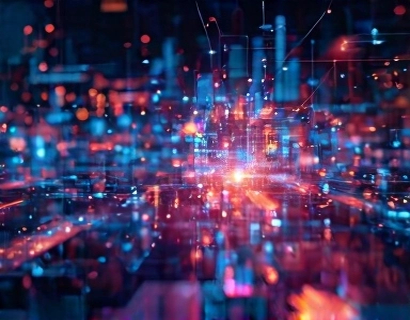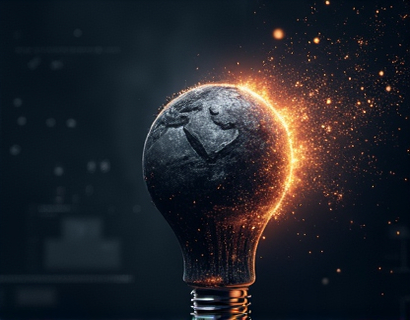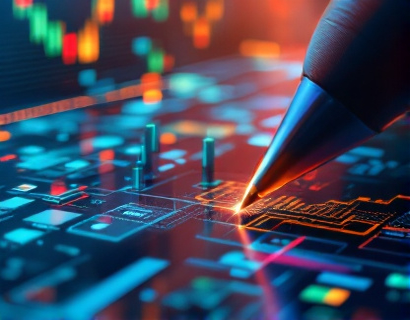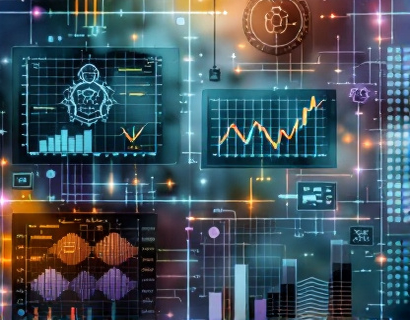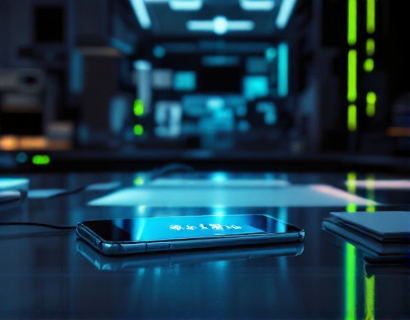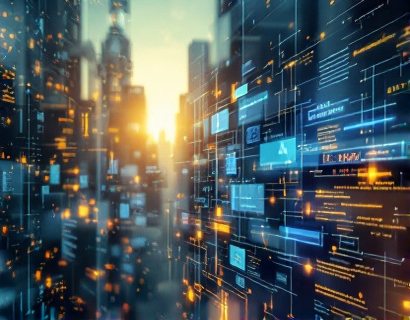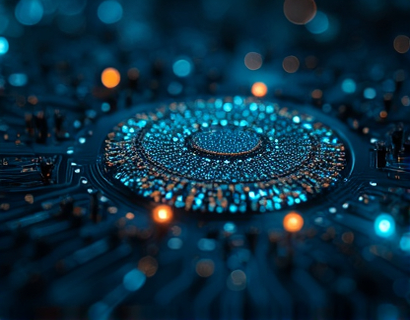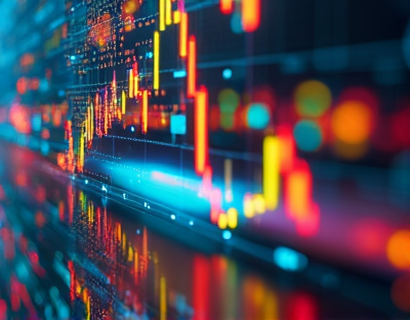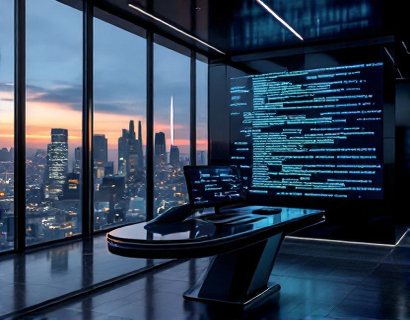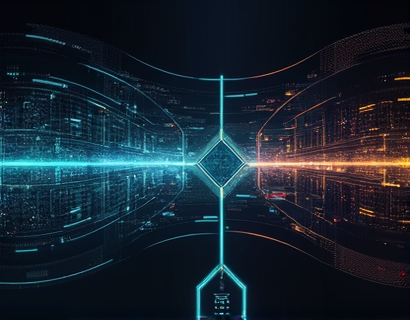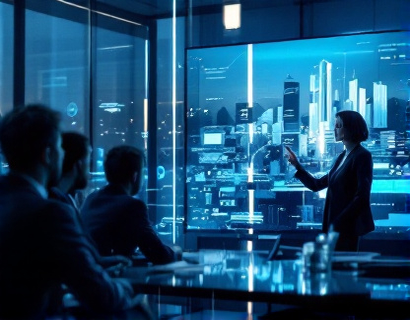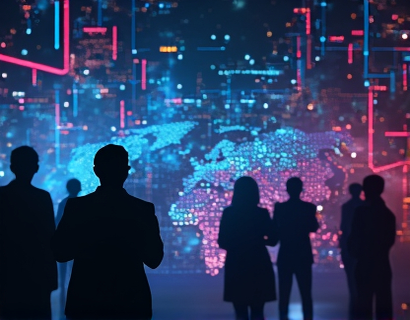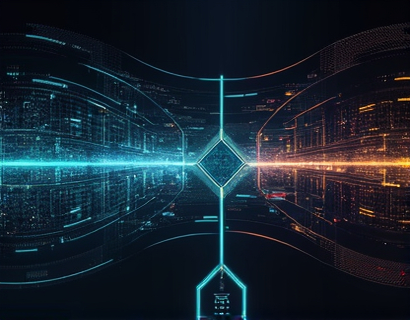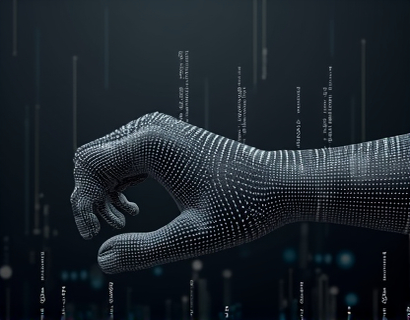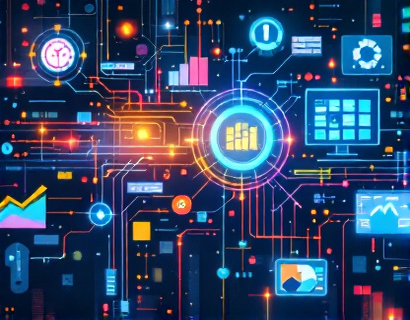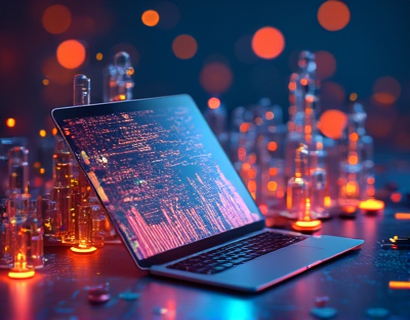Decentralized Innovation: Unleashing Enhanced Digital Experiences with AI and Crypto Integration
The digital landscape is undergoing a profound transformation, driven by the convergence of artificial intelligence (AI), blockchain technology, and decentralized applications (dApps). This synergy is redefining user interactions and opening new growth opportunities for tech professionals and enthusiasts. The integration of AI and crypto is not just a trend but a fundamental shift in how we perceive and engage with digital services. This article delves into the transformative impact of decentralized technologies, exploring how AI and blockchain are revolutionizing the tech industry and enhancing digital experiences.
The essence of decentralized innovation lies in its ability to distribute control and ownership across a network, eliminating the need for central authorities. This paradigm shift is powered by blockchain technology, which provides a secure, transparent, and immutable ledger for transactions. When combined with AI, the potential for creating intelligent, autonomous, and user-centric systems becomes immense. The integration of these technologies is not only enhancing existing digital experiences but also paving the way for entirely new forms of interaction and engagement.
Understanding Decentralized Technologies
To fully appreciate the impact of decentralized innovation, it's essential to understand the core concepts of blockchain and dApps. Blockchain is a distributed database that maintains a growing list of records, called blocks, which are linked using cryptography. Each block contains a cryptographic hash of the previous block, a timestamp, and transaction data. This structure ensures that once data is recorded, it cannot be altered retroactively without altering all subsequent blocks, which requires consensus from the network.
Decentralized applications, or dApps, are applications that run on a blockchain or a decentralized network. Unlike traditional applications that rely on centralized servers, dApps are distributed across a network of computers, making them more resilient to censorship and downtime. The smart contract functionality of blockchain enables dApps to automate processes, enforce rules, and manage transactions without intermediaries. This not only reduces costs but also increases transparency and trust among users.
AI in Decentralized Systems
The integration of AI into decentralized systems is a game-changer. AI algorithms can process vast amounts of data, identify patterns, and make predictions, all of which can be leveraged within a decentralized framework. For instance, AI can enhance the security of blockchain networks by detecting and mitigating potential threats in real-time. Machine learning models can analyze transaction patterns to identify anomalies, reducing the risk of fraud and enhancing the overall integrity of the network.
Moreover, AI can improve the user experience in decentralized applications. Personalization is a key area where AI shines. By analyzing user behavior and preferences, AI can tailor content and services to individual needs, creating a more engaging and relevant experience. In decentralized finance (DeFi), AI-driven algorithms can optimize trading strategies, manage risk, and provide insights that traditional systems cannot match. This level of intelligence and automation is transforming how users interact with financial services.
Enhanced User Interactions
The combination of AI and blockchain is redefining user interactions in several ways. One significant aspect is the creation of decentralized identity systems. Traditional identity management is centralized, making users vulnerable to data breaches and privacy violations. Decentralized identity solutions, powered by blockchain and AI, allow users to control their digital identities securely. AI can help manage and verify identities, ensuring that only authorized users access specific services, thereby enhancing security and privacy.
Another area where AI and blockchain are making a difference is in customer support and service. Chatbots and virtual assistants, enhanced by AI, can provide 24/7 support within decentralized platforms. These AI-driven agents can handle a wide range of queries, from simple information requests to complex problem-solving, all while maintaining the decentralized nature of the service. This not only improves response times but also reduces the burden on human support teams.
Growth Opportunities in the Decentralized Economy
The decentralized economy is creating new opportunities for businesses and individuals alike. One of the most promising areas is decentralized marketplaces, where buyers and sellers can transact directly without intermediaries. AI can optimize these marketplaces by matching supply and demand more efficiently, predicting market trends, and providing insights that help participants make informed decisions. This leads to more dynamic and efficient markets, benefiting all stakeholders.
Decentralized autonomous organizations (DAOs) are another exciting development. DAOs are community-driven entities governed by smart contracts and AI algorithms. They can manage projects, allocate resources, and make decisions based on the collective input of members. AI can enhance the decision-making process by analyzing data, forecasting outcomes, and suggesting optimal strategies. This democratization of governance and decision-making is revolutionizing how organizations operate and evolve.
Challenges and Considerations
While the potential of decentralized innovation is vast, there are challenges that need to be addressed. Scalability remains a significant issue for blockchain networks. As the number of transactions increases, the network can become slow and expensive. AI can play a role in optimizing blockchain performance by predicting network congestion and dynamically adjusting resource allocation. However, ongoing research and development are necessary to overcome these technical hurdles.
Regulatory uncertainty is another factor to consider. The decentralized nature of these technologies often falls into a gray area of existing laws and regulations. Stakeholders must navigate this complex landscape carefully, ensuring compliance while advocating for clear and supportive frameworks. AI can assist in monitoring regulatory changes and providing compliance solutions, but human oversight remains crucial.
Future Prospects
The future of decentralized innovation is bright, with AI and blockchain continuing to evolve and integrate in new and exciting ways. As technology advances, we can expect more sophisticated AI models that can operate seamlessly within decentralized networks. The convergence of edge computing and blockchain, for instance, could lead to real-time, low-latency applications that were previously unimaginable.
The adoption of decentralized technologies is also likely to grow across various industries, from healthcare to supply chain management. AI-driven insights will become increasingly valuable, enabling organizations to make data-informed decisions and improve operational efficiency. The user-centric approach of decentralized applications will continue to gain traction, as individuals demand more control and transparency in their digital interactions.
In conclusion, the synergy of AI and blockchain is transforming the digital landscape, offering enhanced experiences and unprecedented growth opportunities. As tech professionals and enthusiasts, embracing these technologies and understanding their potential is crucial for staying ahead in the evolving tech ecosystem. The future is decentralized, intelligent, and empowering, and the journey has just begun.





